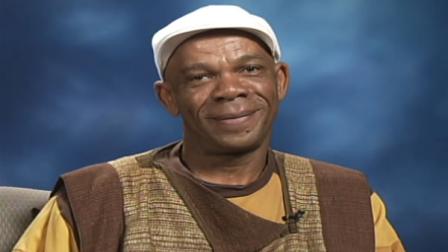
Actually, it ended on January 1, but my family was invited to a last day's celebration in a friend's church. I've never been at one of these Holidays and didn't know, what to expect.
As usual, I had to spread the word around, but only my children, Sonny and Hanah, and Evelyn, a lady from my church, made it there. The setting was quite humble, but the spirit was rich with joy and music.
Kwanzaa is a seven day celebration of the family and individual virtues that should be and are central in every culture.was originated in 1967. At it's first ever observance, when it was called Kwanza (with one 'A'), seven children came out to say something about each letter in that word. But there were only six letters! So, one more 'A' was added to honor the seventh child!
Every day of Kwanzaa celebrates a different virtue. On the last day it is Faith - Imani. The sanctuary was decorated with African hangings and figurines. In front stood a table covered with African Red, Green and Black flag. On it were objects central to Kwanzaa observance: a candlestick with seven red, green and black candles, which are lit one by one every day of the holiday; corn - symbol of fruitfulness or children ( in a family, they would have as many corns on the table as there are children in the family), presents, Zavadi, for everyone. A group of drummers played a very lively and lovely tune on a variety of African drums. As we found out later, children among them were just kids from the audience: their participation was unrehearsed and voluntary.
 |
| Tacuma King |
 |
| Pastor Muhyee on the right with some friends Kwanzaa became even more real to me then. We clapped and swayed and stomped to music and shouted "Ashe!" - yes! (I think) - to everything. At the end of the program, Pastor Mustafa Muhyee, dressed in a very smart dashiki, spoke briefly from the pulpit. He reminded us that our strength comes from God and from our cultures. Ashe! |
No comments:
Post a Comment